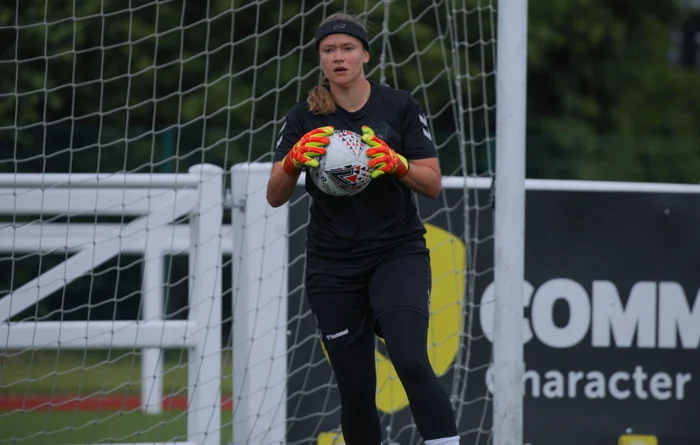While talent and on-field skills are crucial for any footballer, grassroots players need to consider another vital aspect: developing vocational and educational skills. These skills go beyond the pitch, promoting personal growth and setting them up for overall success. Many young players see football as their sole future, but the reality is, only a small percentage make it pro. This article highlights why acquiring vocational skills is essential for grassroots footballers, ensuring they have a solid plan for the future, even if their football dreams don’t materialize. But even for those who achieve footballing success, a plan for life beyond the playing career is equally important.
1) Career Opportunities: While aspiring to a professional football career is commendable, acquiring formal and informal education offers a valuable advantage. It provides a strategic plan B for Footballers navigating the competitive landscape of professional sports. Formal and informal education equips footballers with a diverse skillset applicable to various career paths within the sports industry, including coaching, sports management, and sports marketing. These skills significantly enhance employability and career prospects.
Furthermore, formal and informal education broadens a player’s skill set, making them more adaptable and versatile in the job market and it offers the flexibility to transition into entirely new fields. Exemplary cases include former professional footballers Demetrius Omphroy (art industry), Tatiana Saunders (financial services), and Gareth Farrelly (legal profession). Their successful transitions demonstrate the transferable nature of the skills and knowledge acquired through vocational training.
2) Personal Development: While football development is crucial, fostering well-rounded individuals is equally important. Investing in formal and informal education promotes holistic growth, extending beyond purely technical skills. Engaging in activities outside of football allows grassroots players to cultivate essential soft skills like problem-solving, communication, and critical thinking. These transferable skills are invaluable assets, not only enhancing their performance on the pitch but also shaping them into well-rounded individuals equipped for future success, both on and off the field.
3) Network: Footballers who acquire formal/informal education gain access to a valuable network, something that solely focusing on football wouldn’t offer. Certifications, workshops, conferences, and professional organizations create opportunities to connect with industry professionals, mentors outside the football industry and others who share similar passion with them. This network becomes a powerful resource, providing valuable insights, guidance, and potential career opportunities that can fuel their success in the future, after their playing careers.
4) Financial Freedom: Financial limitations can be a significant obstacle for many aspiring footballers. Acquiring formal and informal education offers a powerful solution: the potential for an additional source of income. The skills acquired in the course of this education allow players to capitalize on their sports and non-sports related passion . Opportunities like coaching clinics, sports camps, or even launching a sports-related business become viable options.
This financial security empowers players to dedicate more resources to their football development. Without the constant pressure of financial constraints, players can focus their energy on honing their skills on the field. This newfound freedom fosters an environment conducive to achieving footballing aspirations and ultimately increases the chances of success in the sport and in life at large.
The Roles of Parents and Guardians in encouraging young footballers to acquire Formal and Informal Education
The journey of a young footballer is rarely a solo endeavor. While talent and dedication on the pitch are undeniably crucial, the role of parents and guardians in shaping their future success, both on and off the field, cannot be overstated. Their encouragement and guidance, particularly in the realm of formal and informal education, can have a profound and lasting impact.
- Cultivating a Well-Rounded Athlete: Parents are the primary influencers in a young athlete’s life, shaping their values and aspirations. By emphasizing the importance of education alongside a burgeoning football career, parents can instill a well-rounded perspective in their child. This perspective prioritizes personal growth and long-term success, recognizing that a successful life can extend far beyond the final whistle. Active involvement in their child’s academic journey goes a long way. Providing ongoing support, guidance, and access to necessary resources fosters academic excellence and creates a foundation for lifelong learning.
- Expanding Horizons Beyond the Pitch:The world holds a vast array of possibilities beyond the confines of the football pitch. Parents can play a crucial role in broadening their child’s perspective by exposing them to various vocational opportunities. Encouraging exploration in diverse fields, such as coaching, sports management, or even entirely different industries, helps young footballers understand the importance of having a backup plan and a diversified skillset. This shift in perspective alleviates the immense pressure of relying solely on a professional football career for success. Empowered with a broader understanding of their options, young athletes can confidently pursue their passion for the sport while simultaneously preparing for alternative paths that may emerge.
- Building a Network for Future Success: Networking is a vital tool in navigating any career path, and the world of football is no exception. Parents can act as facilitators, connecting their children with mentors, professionals, and industry experts within both the football and educational communities. This network can be invaluable, providing young footballers with access to guidance, mentorship, and potential career opportunities. These connections not only open doors but also foster personal development and growth, exposing young athletes to diverse perspectives and experiences that will shape their future endeavors.
- Empowering Through Education: Ultimately, the unwavering support and encouragement of parents and guardians are instrumental in empowering young footballers to prioritize education alongside their athletic ambitions. By promoting a holistic approach to success, parents can lay the foundation for a fulfilling and prosperous future, regardless of the path their child chooses to pursue. Whether their child achieves footballing stardom or carves a successful path in another field, a strong educational foundation combined with a diverse skillset will ensure they are well-equipped to navigate the challenges and opportunities that lie ahead.
Conclusion
A young footballer’s journey goes beyond his playing days. While on-field performance is undeniably important, the commitment to formal and informal education is the ultimate trump card. As we’ve seen, education ignites personal growth, fuels career options, and paves the way for long-term success. With unwavering support from parents and guardians, young footballers can embrace a holistic approach to their development. This empowers them to navigate the challenges and opportunities that lie ahead, both on and off the pitch. By nurturing both athletic prowess and academic potential, parents and guardians become architects of their child’s future. They pave the way for a bright and promising tomorrow, where success extends far beyond the roar of the crowd, ensuring these young athletes are champions in the game of life itself.



